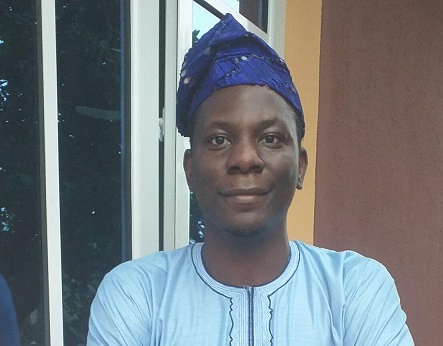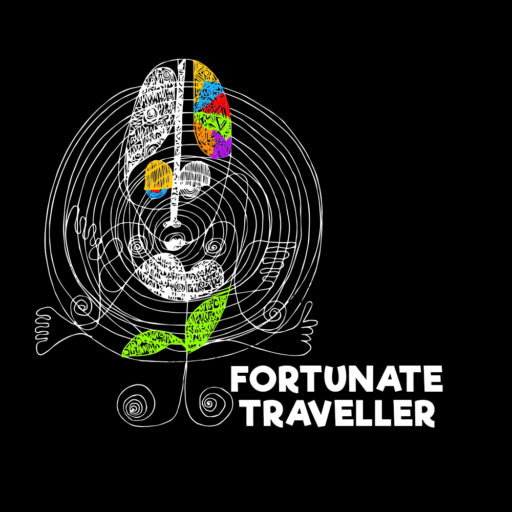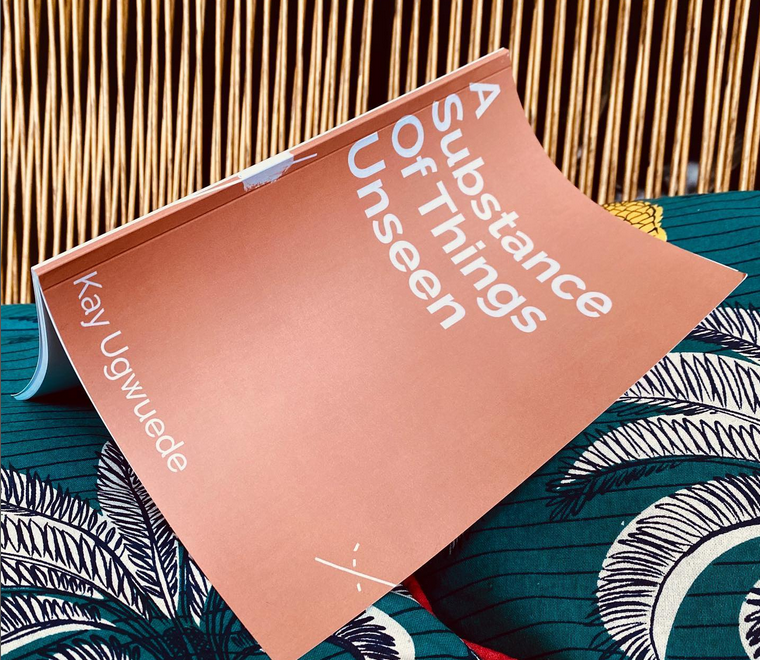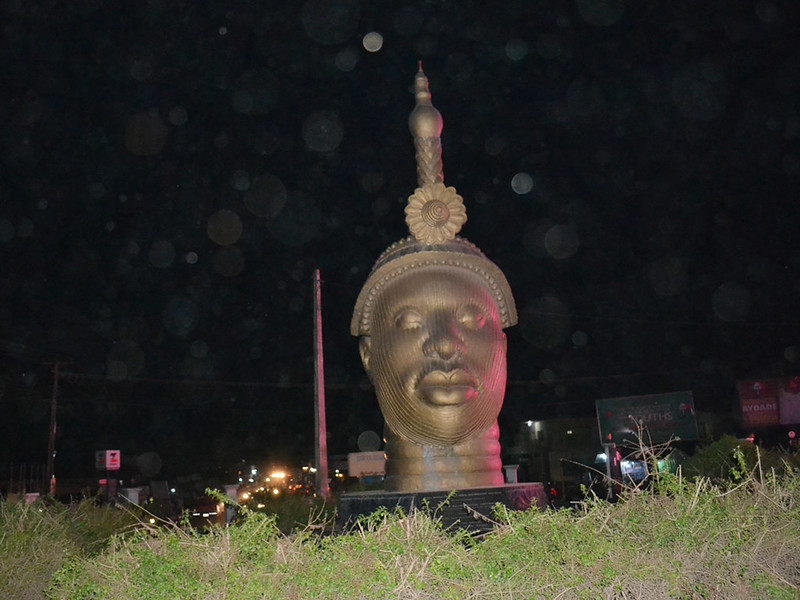
- Title: Collective Truth
- Author: Yinka Elujoba
- Publisher: Invisible Borders Trans-African Project
- Number of pages: 36
- Year of publication: 2016
- Category: Travel/Nonfiction
The truth is always something that is told, not something that is known. If there were no speaking or writing, there will be no truth about anything. There would only be what is. – Susan Sontag, The Benefactor.
In reading Yinka Elujoba’s Collective Truth, it is important to understand where it is coming from. Collective Truth is a part of a three-book series of narrative accounts (the other two being Uche Okonkwo’s What the Road Offers, and Emmanuel Iduma’s Lives that Enter Mine) of the Borders Within 2016 Road Trip. The road trip, organised by Invisible Borders, took seven individuals, among them photographers, filmmakers and writers, on a six-week journey across Nigeria. It was a journey that took them as far as Ikpe Waterside in Benin and to Port Harcourt (both in South-South Nigeria), to Enugu in Southeast Nigeria, and across the country to Adamawa, Northeast Nigeria. These individuals undertook the task of creating images and text that ‘reflect impressionistic yet critical readings of contemporary Nigeria’. Collective Truth revolves around the interactions that the author has with some of the participants in the Biafra war, such as Benson Edobor and Edwards Ehighie in Benin, Mr Ifebunadu in Enugu, and Daniel Dewua in Yola. The narrative also features stories from the author’s own formative years and explores the way those stories allow him to approach the subject of history.
This understanding of the creative process that birthed Collective Truth helps the reader assume the appropriate stance in engaging it. Because the work is impressionistic, facts, rather than being treated as immutable theories of reality, are approached from a more skeptical perspective. For example, it is often mentioned in Biafran War narratives that the killings were one-sided, a Nigerian army deciding to starve the hapless and defenceless Igbo to death. Edwards Ehigie, however, talks about the massacre of Northerners, ‘…How he saw lorries filled with the bodies of dead Hausas’ (p.10).
In reading this book critically, one is reminded of the American Nobel Laureate Toni Morrison’s 2019 essay, ‘The Question of Race in Beowulf‘, where she talks about the famous Old English poem Beowulf:
‘Delving into literature is neither escape nor surefire route to comfort. It has been a constant and sometimes violent, always provocative engagement with the contemporary world. The issues of the society we live in. As I tell it, you may be reminded of the events and rhetoric and actions of many current militarized struggles and violent upheavals.’
The above quote in a lot of ways captures the essence of Collective Truth. The work is provocative, and there is the underlying theme of violence – particularly where the violence of the Nigerian civil war of 1967-1970 forms a backdrop for the interactions between the writer and the people he interviewed in the course of the trip. Indeed, there is no engaging contemporary Nigeria (or Nigeria at any point at all) without discussing the theme of violence, since the amalgamation that led to the drawing of its borders is some sort of violence, a crude division of the people that might not have involved the shedding of physical blood, but still involved the psychological violence of separation – case in point being the separation of the kingdom of Adamawa into part Nigeria, part Cameroon.
There is a particular character that stands out in Collective Truth: Daniel Dewua, the civil war veteran whom the author and his teammates met in Yola. His brazen disregard of what the team members had considered undisputable history is interesting in itself: ‘Emeka asked him what he thought of the Asaba massacre. What? What massacre? Are you saying Nigerian soldiers suddenly opened fire on unarmed civilians? I don’t think anything like that happened.’ (p.14)
In a certain sense Dewua’s obliviousness is a warning to the author and his cohorts not to become victims of memory. Memory is a fickle thing, as the team’s encounter with the son of Ota Okunna proves (p.4). Dewua, more than any other character, embodies the negotiation that everyone has to do with memory in order to come up with the truth. The clichéd expression ‘the truth is bitter’ comes to mind here. Perhaps the bitterness of truth is in its violence. The way it cuts deep into the bone, violently reopening old wounds and exposing memory as a fickle, unreliable thing and leaving nothing but trauma in its wake. Hence Dewua declares:
‘Of what use are monuments? Why do people always want to remember? Remembering is a bad thing and always breeds hate and a need for vengeance.’ (p.15)
A few days after I started reading this book, a tweet dispute broke out between Ruona Meyer, German-Nigerian journalist and El-Nathan John, Germany-based Nigerian author and satirist. Of course, as disputes go, the whole thesis of the discourse got lost in the brawl, and insults were traded between both combatants and the people who backed each of them in equal measure, but the bone of contention was the notion of memory, safe spaces for creatives, and the definitions of truth, and power. That fight is a wider discussion of the issues that Elujoba raises in this book, namely: What happens when truths collide? Who has the right to define the truth? Is a truth more valid because it is collective? At what point does the individual’s truth become subject to a collective truth?
It has to be noted that the objective of Collective Truth was not to get a definite answer to these questions. Indeed, Elujoba himself comes away with more questions than answers at the end of the trip. The famous declaration: ‘You shall know the truth and the truth shall set you free,‘ credited to Jesus of Nazareth, comes to mind here. Perhaps in Collective Truth, Yinka Elujoba is on a quest to find truths that will free him from the questions that have burdened his soul from the time he held an atlas in his hand ‘as an 8 or 9 year old’. (p.18) But perhaps Daniel Dewua, insensitive as he may sound, has a point. Maybe the truth doesn’t set anyone free, maybe it just places one under even a higher burden, a burden that the writer must continually pursue in order to be free of it.
But away from the questions of memory and truths, what makes Collective Truth a great read is the fact that it is written from the perspective not of a teacher or a guide, but of a fellow traveller. The ‘I’ narrator that the author uses is a very good technique for making the book feel personal to the reader. Interestingly enough, unlike a lot of other impressionistic works, there is no air of arrogance or an attempt at didacticism. What you find instead is the earnestness of someone on a quest, bringing the reader along on a journey. Yinka Elujoba sets out on the physical journey, and he takes the reader right along vicariously. The author does not hesitate to share his own doubts, fears and expectations about the journey, which engages the reader in conversation in order to get him to do the same. He leaves his questions open, allowing the reader to apply them to his own psyche and memories and to examine his own truths against them.
As a reader, one would be amiss if one does not take note and praise Yinka Elujoba’s skill as a storyteller. The book is creative nonfiction, yet it reads like a drama text or a poetry piece, such is his exquisite use of language and his lush and mellifluous prose. He says in Part B, ‘A map is a political expression, cartography is never an innocuous practice. But nothing is as tenuous as a map uncontested’ (p.25). Elujoba’s narration is vivid and poetic, and the reader is drawn into a world of colourful characters and places: ‘I was immediately fascinated by the colours inside it. The vegetation of places’ (p.18). With each scenario, Elujoba leaves the reader feeling like he is part of the goings on in the book. Reading Elujoba, one is reminded of another master bard, Tade Ipadeola. It is the same intellectual depth that comes from years of deep study and acquisition of knowledge that makes their writings a superb read.
All in all, with Collective Truth, Yinka Elujoba, even if he might argue it himself, has produced a fine testament to the achievement of the purpose for which it was written, a purpose the late Pius Adesanmi describes as ‘providing clarity’, or in other words challenging the ‘Nigerian creative’ to rethink and re-evaluate the notion of the physical and the psychological space called Nigeria.
^This is the third and final part of a series of reviews focusing on Invisible Borders’s 2016 chapbook series. The previous reviews can be read on this website. In the coming weeks, we shall also serialise reviews and interview of their 2017 Borders Within travel narrative chapbooks.

Adebayo Adegbite is a Nigerian writer, editor and book reviewer based in Ibadan Nigeria. He is the Creative Lead at Thoughtivity.Com, an Editorial and Content Development Agency. He can usually be found writing on his blog www.adebayoadegbite.wordpress.com, or most of the time on Twitter @beebayuu.
Cover photo credit: Brendan van Son



